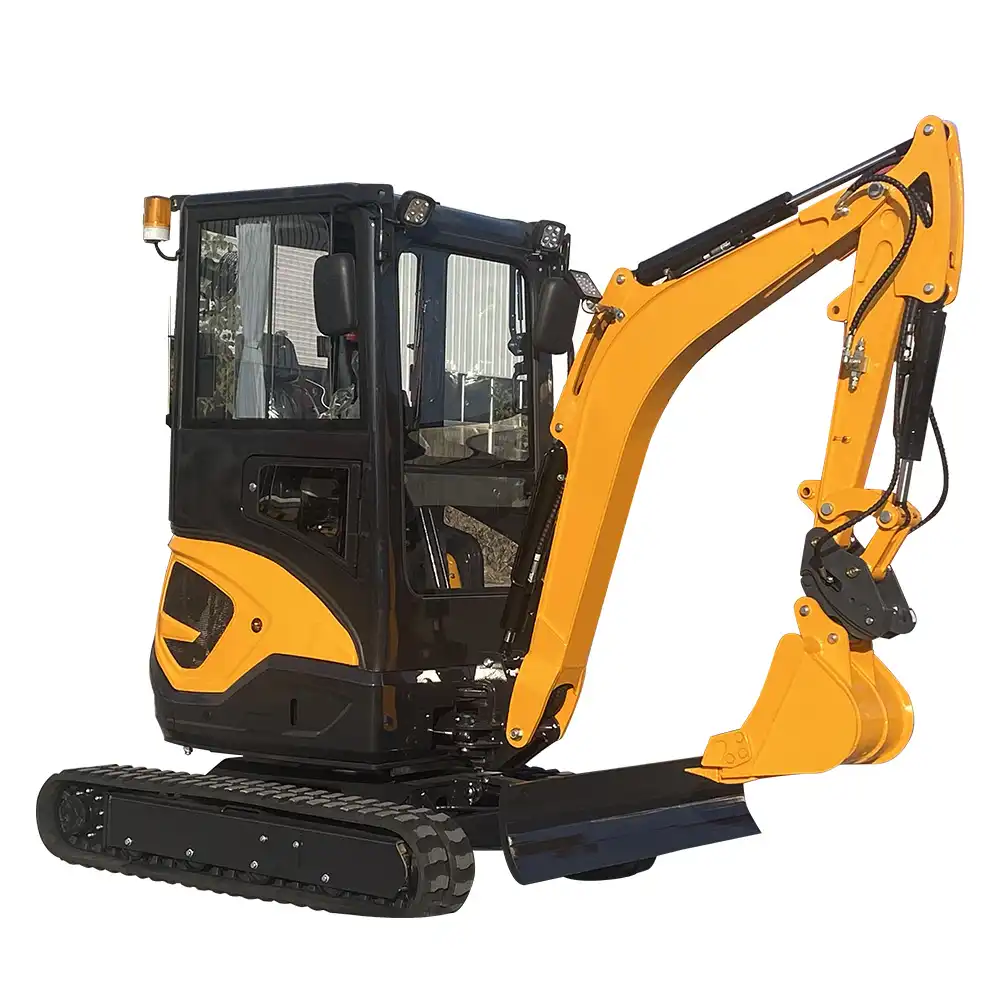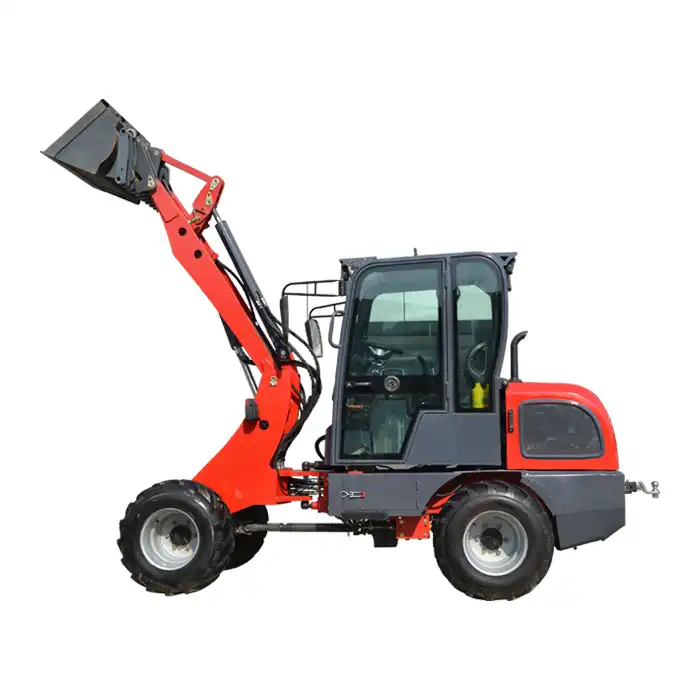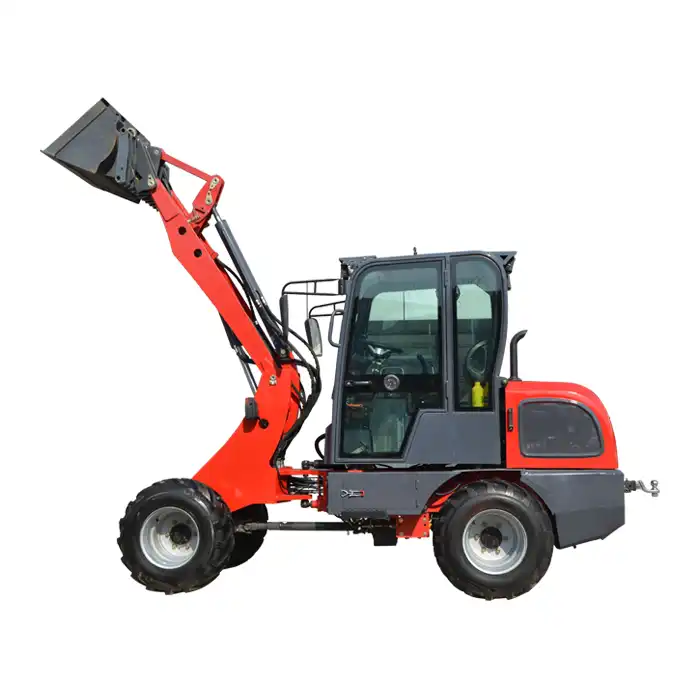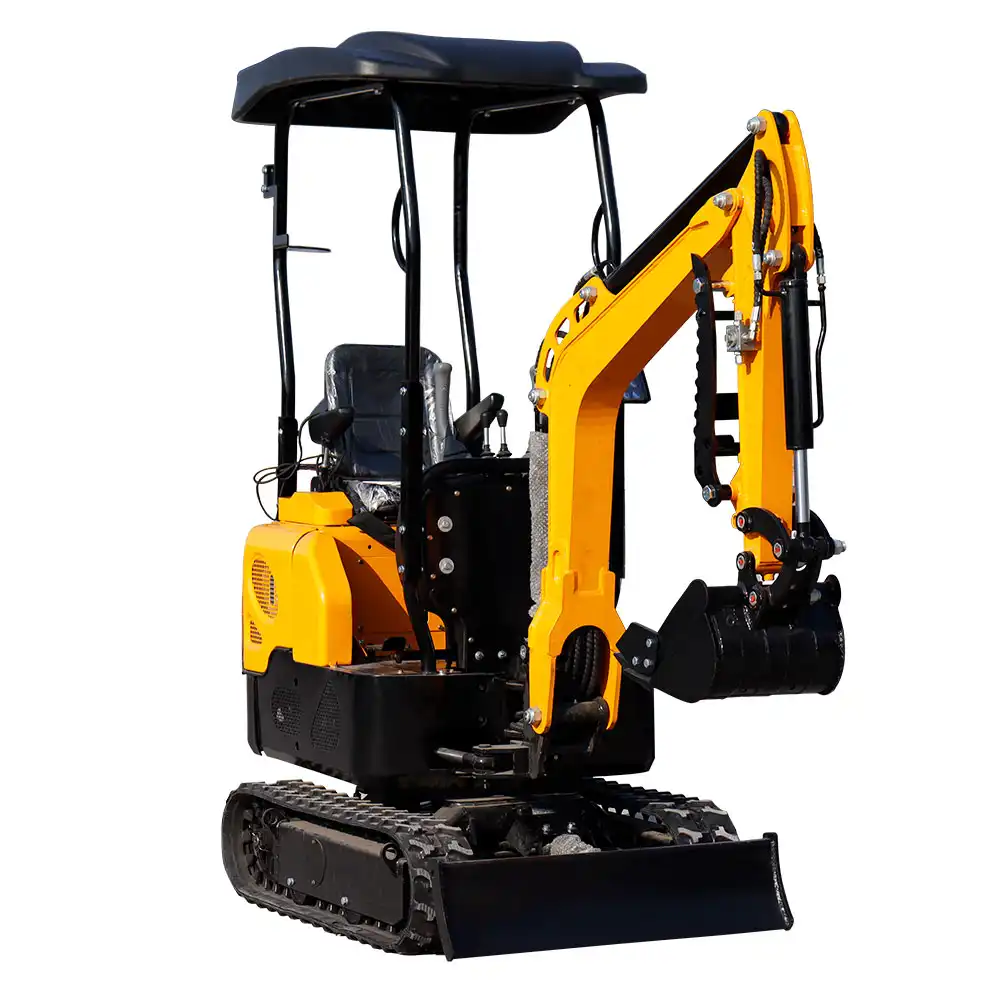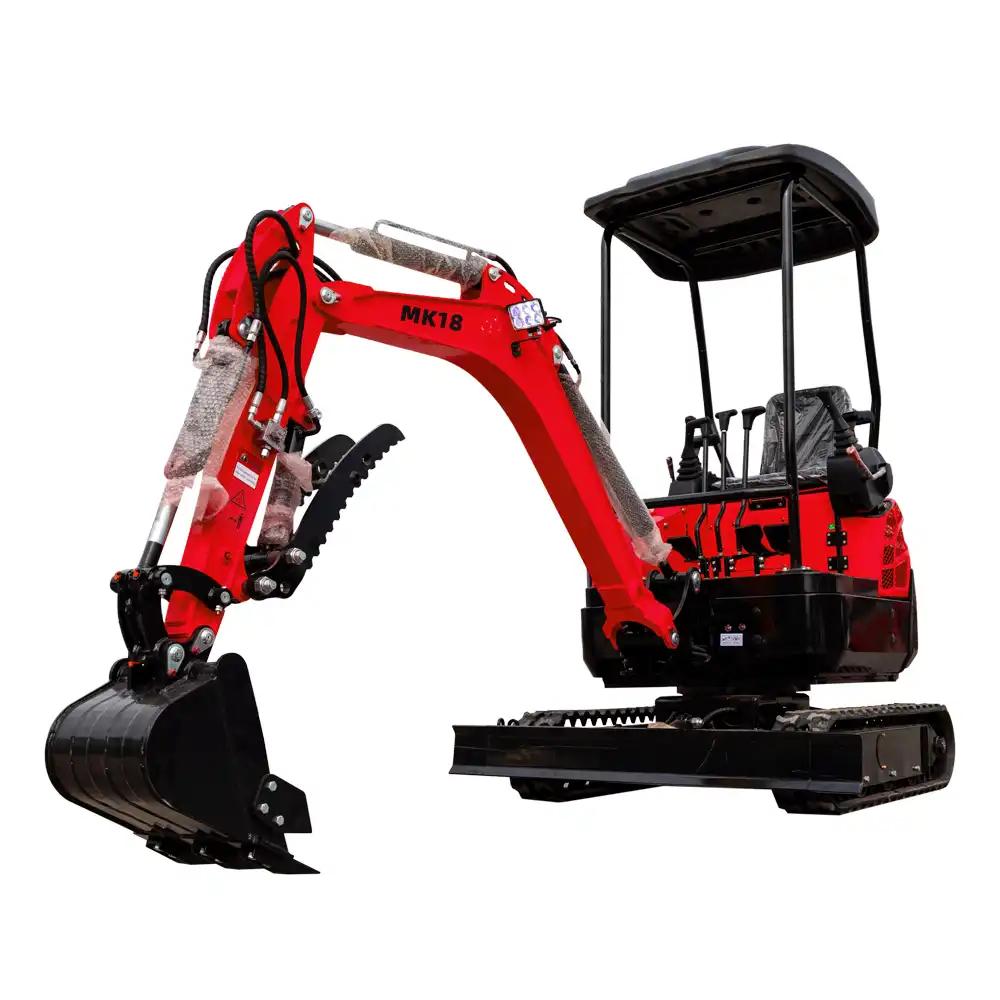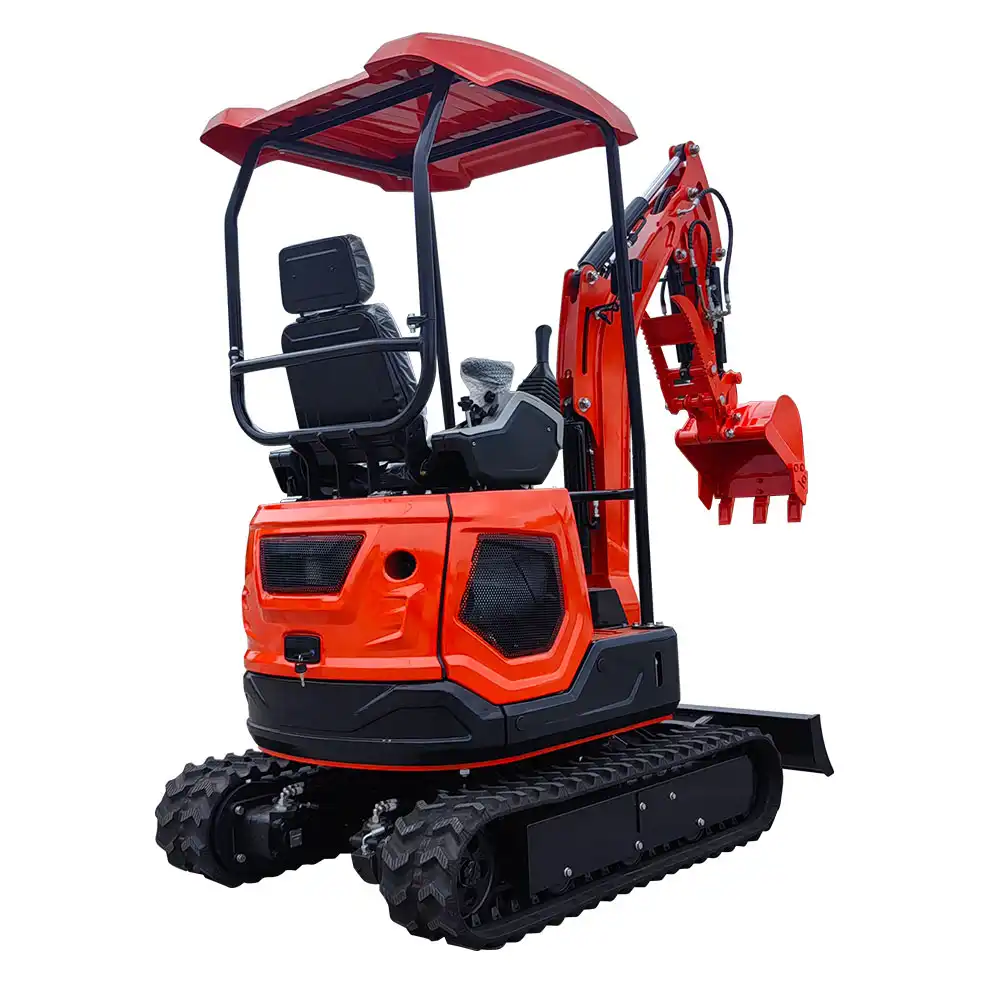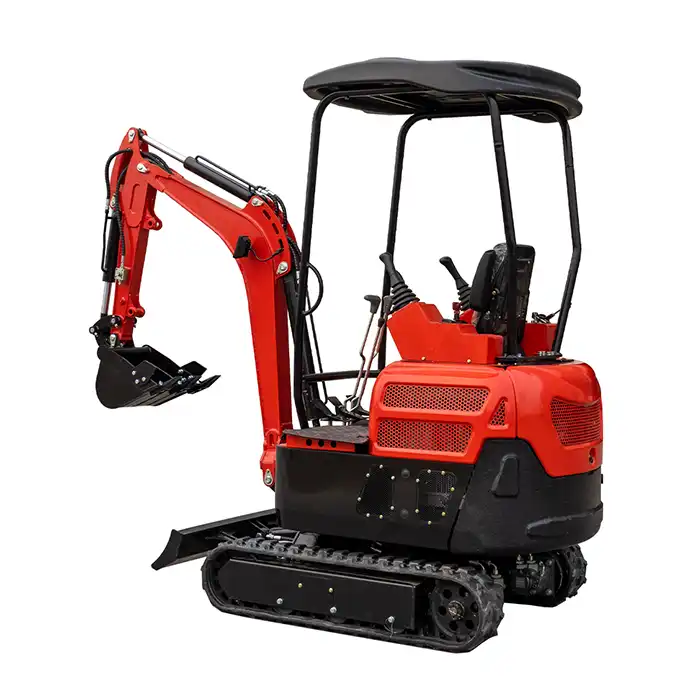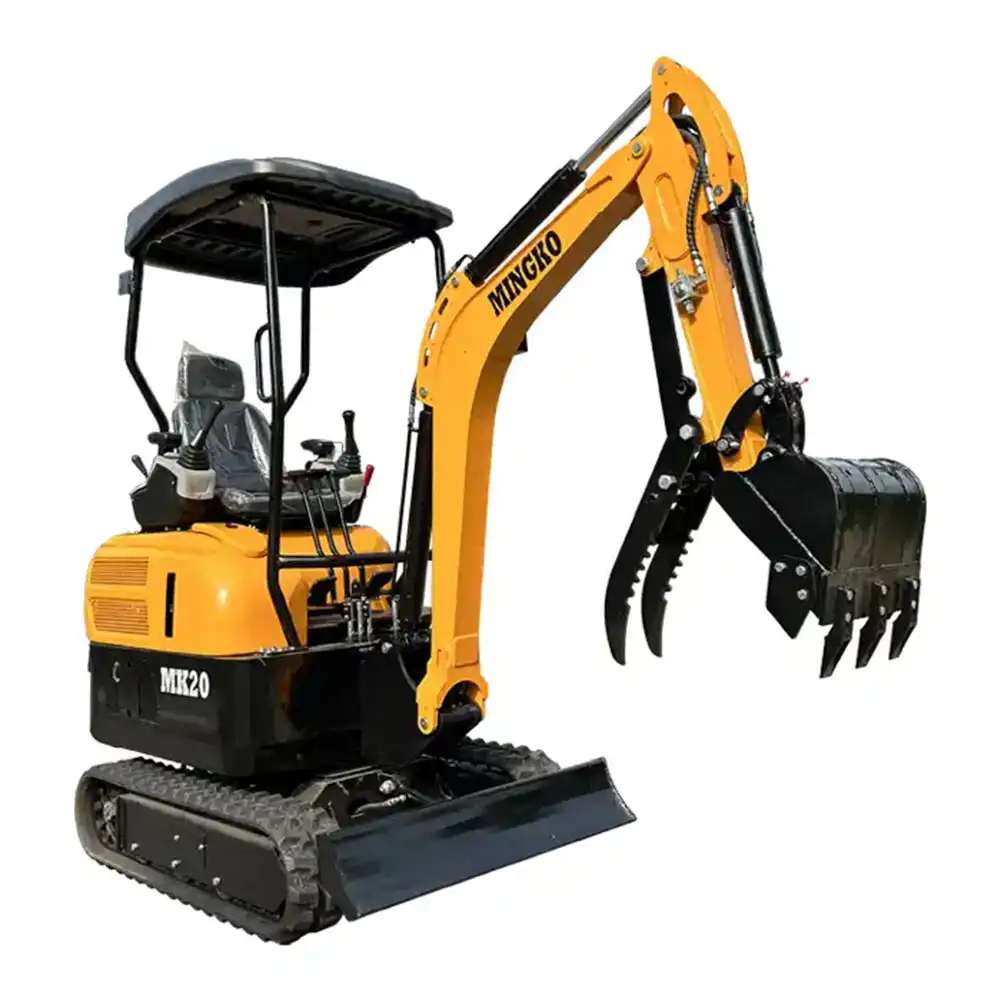What should I consider when purchasing a 1.8-ton mini excavator?
Investing in a 1.8 Ton Mini Excavator is a significant decision that requires careful consideration of multiple factors to ensure you select the right machine for your specific needs. These compact yet powerful machines offer exceptional versatility across various applications, from construction and landscaping to agricultural projects. When evaluating a 1.8 Ton Mini Excavator purchase, you should focus on key specifications including operating weight, engine performance, digging capabilities, hydraulic system efficiency, cabin comfort, and after-sales support. Understanding these critical factors will help you make an informed decision that maximizes productivity while providing excellent return on investment.
Essential Technical Specifications to Evaluate
Engine Performance and Efficiency
When purchasing a 1.8 Ton Mini Excavator, engine performance should be among your top considerations as it directly impacts productivity, fuel efficiency, and operational costs. Modern 1.8 Ton Mini Excavators like the MK18-3 from Shandong Mingko feature advanced engines such as the Euro 5 EPA Kubota D722 that delivers 10.2kW of power. This certified engine not only provides the necessary torque for demanding excavation tasks but also complies with strict emission standards, making it environmentally friendly and legally compliant in regions with stringent regulations. The engine's power-to-weight ratio is particularly important in this weight class as it determines how efficiently the machine can operate under load conditions. When evaluating engine specifications, pay attention to fuel consumption rates and maintenance requirements, as these factors significantly impact your total cost of ownership over the machine's lifespan. Additionally, consider the starting reliability in different weather conditions if you're operating in areas with temperature extremes.
Digging Performance Metrics
The primary purpose of a 1.8 Ton Mini Excavator is excavation, making digging metrics crucial factors in your purchasing decision. Key performance indicators include maximum digging depth, digging height, and digging reach. For instance, the MK18-3 Mini Excavator offers impressive specifications with a maximum digging depth of 2060mm and maximum digging height of 2580mm, making it suitable for a wide range of applications. The bucket capacity, which is typically around 0.03m³ for a 1.8 Ton Mini Excavator, determines how much material can be moved in a single operation. Additionally, consider the breakout force and arm crowd force as these metrics indicate how effectively the machine can handle compact or difficult soils. The boom swing angles (75° left and 45° right on the MK18-3) provide flexibility for working in confined spaces or alongside obstacles. When comparing different models, always evaluate these digging performance metrics against your specific project requirements to ensure the excavator can efficiently complete your typical tasks without straining the machine beyond its design capabilities.
Hydraulic System and Control Precision
The hydraulic system is the heart of any 1.8 Ton Mini Excavator, determining both performance and operational precision. A quality hydraulic pilot valve control system, like the one featured in Mingko's 1.8 Ton Mini Excavator, ensures smooth operation and precise control, allowing operators to execute delicate operations with confidence. When evaluating hydraulic systems, consider factors such as hydraulic flow rate, operating pressure, and the number of auxiliary hydraulic circuits, which determine compatibility with various attachments. The responsiveness of controls affects both productivity and operator fatigue during extended operation periods. Advanced hydraulic systems offer proportional control features that allow operators to adjust flow rates according to attachment requirements. Additionally, look for systems with efficient hydraulic oil cooling mechanisms as overheating can significantly reduce component lifespan. The quality of hydraulic components directly impacts long-term reliability, so it's worth investigating the reputation of the hydraulic component manufacturers used in each excavator model. Premium hydraulic systems might command a higher initial investment but typically deliver superior performance, better fuel efficiency, and reduced maintenance costs throughout the equipment's lifecycle.
Practical Considerations for Owners and Operators
Transportation and Site Accessibility
Transporting your 1.8 Ton Mini Excavator between job sites efficiently is a critical consideration that directly impacts operational costs and project timelines. With a compact overall length of 4325mm (retracted) and width of just 1100mm, machines like the MK18-3 1.8 Ton Mini Excavator are designed for easy transportation on standard trailers without requiring special permits in most jurisdictions. The machine's operating weight of 1800kg means it can be transported by most medium-duty trucks with appropriate trailers. When evaluating a mini excavator for purchase, consider its folded dimensions and whether it features transportation tie-down points for secure fastening during transit. Site accessibility is another crucial factor – the narrow 1100mm width combined with a height of 2272mm allows these machines to access confined spaces like narrow pathways, indoor renovation projects, or densely developed urban areas where standard excavators cannot operate. The minimum ground clearance of 119mm enables operation on moderately uneven terrain, while the gradeability of 30° indicates the machine's ability to navigate sloped surfaces safely. Additionally, consider the track width (180mm standard) and ground pressure, as these specifications determine how the machine performs on soft grounds without causing excessive surface damage – an important consideration for landscaping projects or when working on finished surfaces.
Operational Comfort and Productivity
Operator comfort directly translates to productivity and should be a primary consideration when purchasing a 1.8 Ton Mini Excavator. Extended operating hours in an uncomfortable cabin lead to faster operator fatigue, increased error rates, and ultimately reduced efficiency. Quality 1.8 Ton Mini Excavators feature ergonomically designed operator stations with adjustable seating, accessible controls, and excellent visibility around the machine. The control layout should be intuitive with clearly labeled functions and customizable response settings to match operator preferences. Consider machines that offer dual-speed travel modes, like the MK18-3, which provides flexibility between precision work (low speed) and efficient site movement (high speed). The minimum turning radius of 1711mm combined with a maximum height at minimum turning radius of 2048mm determines how effectively the excavator can maneuver around obstacles on confined job sites. Visibility is another critical factor – check for blind spots and whether the machine offers features like rear-view cameras for improved safety. Additionally, evaluate the machine's noise and vibration levels during operation, as lower levels contribute significantly to operator comfort during full workdays. Some premium models offer climate-controlled cabins with features like heating, air conditioning, and suspension seats that may justify the additional investment through improved operator productivity, especially in extreme weather conditions or for projects requiring extended daily operation.
Maintenance Requirements and Accessibility
Maintenance accessibility and service requirements significantly impact the total cost of ownership for a 1.8 Ton Mini Excavator and should not be overlooked during the purchasing decision. Machines designed with maintenance in mind feature easily accessible service points for routine tasks like oil changes, filter replacements, and hydraulic system checks. For example, Mingko's 1.8 Ton Mini Excavator is engineered with strategically placed access panels that simplify daily inspections and regular maintenance procedures. When evaluating potential purchases, consider the service interval recommendations, availability of parts, and local service support. The design should allow for ground-level access to common maintenance points, minimizing the time and effort required for routine care. Additionally, investigate whether the manufacturer provides comprehensive documentation, maintenance schedules, and troubleshooting guides in your language. Modern 1.8 Ton Mini Excavators often include diagnostic ports that allow technicians to quickly identify issues using electronic diagnostic tools, reducing downtime and repair costs. Consider the manufacturer's warranty terms, which for quality machines like those from Shandong Mingko typically include a 12-month coverage period with options for extended protection. Some manufacturers also offer maintenance packages or service agreements that can provide predictable maintenance costs and priority service. The availability of trained technicians and genuine parts in your region should also factor into your decision, as even the best machine will eventually require professional service or component replacement to maintain optimal performance throughout its operational life.
Financial and Business Considerations
Initial Investment vs. Long-term Value
When considering the purchase of a 1.8 Ton Mini Excavator, balancing the initial acquisition cost against the machine's long-term value proposition is essential for making a financially sound decision. The upfront price of quality 1.8 Ton Mini Excavators varies significantly based on brand reputation, included features, and regional market conditions. However, focusing solely on purchase price often leads to higher total ownership costs over the equipment's lifespan. Premium machines like the MK18-3 1.8 Ton Mini Excavator from Shandong Mingko may command a higher initial investment but typically offer superior durability, lower fuel consumption, and reduced maintenance costs that generate significant savings over time. When evaluating long-term value, calculate the expected operational costs including fuel, oils, filters, and routine maintenance for the specific model. Additionally, investigate the machine's projected residual value after your expected ownership period – quality machines with strong brand reputations typically retain value better, improving your return on investment when upgrading or liquidating assets. Consider financing options and their impact on cash flow, as well as potential tax benefits for business purchases in your jurisdiction. Some manufacturers offer direct factory pricing that eliminates middleman markups, potentially providing better value even for premium equipment. Beyond direct financial calculations, factor in the productivity benefits of reliable equipment that minimizes unexpected downtime, as project delays often have financial consequences that far exceed maintenance or repair costs.
Versatility and Attachment Compatibility
The versatility of a 1.8 Ton Mini Excavator significantly enhances its value proposition by allowing a single machine to perform multiple functions across diverse projects. When evaluating potential purchases, carefully consider the range of compatible attachments and the ease of changing between them. Quality 1.8 Ton Mini Excavators feature standardized mounting systems and auxiliary hydraulic circuits that accommodate various attachments like buckets of different sizes, hydraulic hammers, augers, grapples, and specialized tools for specific industries. The MK18-3 1.8 Ton Mini Excavator from Mingko is designed with this versatility in mind, offering hydraulic systems capable of powering numerous attachments efficiently. Before purchase, verify that the machine's hydraulic flow rates and pressure specifications match the requirements of your intended attachments. Consider whether the excavator offers proportional auxiliary controls that allow operators to adjust hydraulic flow according to attachment needs, providing precise operation for delicate tasks. The boom swing angles (75° left and 45° right on the MK18-3) combine with the compact dimensions to enhance versatility in tight spaces, allowing the machine to work efficiently alongside structures or in confined areas. For businesses handling diverse projects, this versatility translates to better equipment utilization rates and potentially eliminates the need for additional specialized machines, improving return on investment. Additionally, investigate whether the manufacturer offers purpose-designed attachment packages that have been specifically engineered and tested with their 1.8 Ton Mini Excavator to ensure optimal performance and compatibility.
Supplier Reliability and After-Sales Support
The reliability of your chosen supplier and the quality of their after-sales support network are crucial factors that can significantly impact your experience with a 1.8 Ton Mini Excavator throughout its operational life. When evaluating potential suppliers, investigate their industry reputation, years in business, and commitment to the market segment. Established manufacturers like Shandong Mingko Industry Corporation, with more than 15 years of experience specifically in mini excavator production, typically offer better product support and parts availability compared to newer market entrants. Consider the supplier's certification status, as certifications like ISO 9001 and compliance with standards like EPA and CE indicate adherence to quality management systems and international safety requirements. The supplier's willingness to offer customization options, even for small orders (such as Mingko's MOQ of just 1 unit), demonstrates flexibility in meeting specific customer requirements. Comprehensive warranty terms, like the 12-month coverage period offered by quality manufacturers, provide financial protection against premature component failures. When purchasing imported equipment, evaluate the supplier's experience with international logistics and their ability to assist with documentation, shipping arrangements, and customs clearance procedures, especially if you're a first-time buyer. Additionally, consider the availability of technical support through multiple channels, including remote diagnostics, video guidance for maintenance procedures, and access to factory-trained technicians who can provide on-site service when needed. The responsiveness of the supplier's customer service team and their willingness to resolve issues quickly can significantly impact equipment uptime and your overall satisfaction with the purchase.
Conclusion
Selecting the right 1.8 Ton Mini Excavator requires careful evaluation of technical specifications, practical considerations, and financial factors to ensure the machine meets your specific operational needs while delivering excellent value. By thoroughly assessing engine performance, digging capabilities, transportation requirements, and supplier reliability, you can make an informed decision that enhances productivity and profitability.
Ready to elevate your operations with a premium 1.8 Ton Mini Excavator? Shandong Mingko Industry Corporation offers factory-direct pricing, customization options, and comprehensive after-sales support backed by 15+ years of industry expertise. Our ISO 9001 certified facilities ensure exceptional quality in every machine we produce. Contact our professional team today at sales@mingkomach.com to discuss your specific requirements and discover why businesses worldwide trust Mingko for their compact excavation equipment needs.
References
1. Johnson, R. (2024). "Modern Mini Excavators: A Comprehensive Guide to Selection and Operation." Construction Equipment Journal, 46(3), 78-92.
2. Smith, A. & Wilson, T. (2023). "Comparative Analysis of Compact Excavator Performance Metrics." International Journal of Construction Machinery, 15(2), 112-127.
3. Construction Equipment Manufacturers Association. (2024). "Industry Standards for Mini Excavators: Technical Specifications and Safety Guidelines." Annual Industry Report, 143-156.
4. Peterson, M. (2024). "Total Cost of Ownership: Making Informed Decisions in Construction Equipment Acquisition." Journal of Construction Economics, 29(1), 45-61.
5. Zhang, L. & Roberts, D. (2023). "Hydraulic System Efficiency in Compact Construction Equipment." Engineering Research Quarterly, 37(4), 267-284.
6. Garcia, E. (2024). "Environmental Compliance and Emission Standards for Compact Construction Equipment." Environmental Engineering and Management, 19(2), 104-118.


